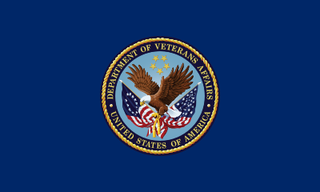Trauma
Sexual Trauma, Rape, PTSD, and Suicide: Part 1
A conversation with Katie Webb.
Posted August 3, 2016 Reviewed by Devon Frye
Among Americans, rape is the trauma that is most likely to lead to PTSD. The medical profession is becoming increasingly aware that sexual trauma represents a serious medical and mental health concern. Several years ago, in recognition of the downstream consequences of sexual trauma on veteran health, the VA healthcare system developed the position of a Military Sexual Trauma (MST) Coordinator. The MST coordinator is the point person, within any VA healthcare system, who provides education, outreach, and consultation to support MST survivors and the healthcare professionals who take care of them.
Katie Webb, L.C.S.W., is the Military Sexual Trauma Coordinator for the VA Palo Alto Health Care System. Katie received her Master’s Degree in Social Work from New York University. Prior to joining the Palo Alto VA, she served as Assistant Director at a community non-profit agency in New York City, working with survivors of interpersonal violence who have disabilities. Her clinical interests include the treatment of PTSD and comorbid diagnoses, intimate partner violence, military sexual trauma, and the implementation of telehealth technology to expand mental health care access to underserved communities.
I spoke with Katie about MST, PTSD, the risk of suicide, and how the VA experience can inform the national debate about college campus rape.
Shaili Jain: What is the definition of MST?
Katie Webb: MST stands for Military Sexual Trauma, and it's defined as sexual assault or repeated threatening sexual harassment that occurs at any point during a veteran's military service.
Shaili Jain: Obviously, this would apply to male veterans and female veterans. Does the definition depend on who the perpetrator of the crime is?
Katie Webb: Perpetrator identity doesn't matter. It could be anyone from enemy combatant to a civilian, spouse, girlfriend, boyfriend, commanding officer, or fellow service member. Any perpetrator still qualifies as MST.

Shaili Jain: Why do you think VA facilities need somebody in your position, someone who is an MST coordinator? What is the scope of the problem? Why has it become such a salient issue that we need a coordinator? What does your job entail?
Katie Webb: Increasingly, over the years the VA (and I think this parallels the process of society, too) is realizing that sexual trauma is a serious medical and mental health concern. It can lead to so many different physical and mental health diagnoses, and it is more likely to actually result in PTSD than combat trauma. So taking all of that into account, the VA is increasingly pushing it to the forefront of their priority, and they developed the position of MST coordinator several years ago. The MST coordinator is the point person within any VA healthcare system who can provide education, consultation, and support to the healthcare system that they're in. I primarily work to provide education, outreach materials, training on new initiatives, and to consult with any healthcare provider who's working with an MST survivor and needs some assistance. I also serve as the point person for anyone calling the VA Palo Alto healthcare system with questions—any survivors that call and are interested in getting engaged in care would contact me.
Shaili Jain: There have been a lot of really great big data studies in the VA recently, and some of them have identified risks associated with MST. I'm referencing the recent publication by Rachel Kimerling and her lab that was published in The American Journal of Preventative Medicine where they actually identified MST as a significant risk factor for suicide. Can you comment on that and how this research maps on to what we're doing day to day in our clinical work with patients?
Katie Webb: The research was saddening but not surprising. It really just puts a research voice to what people who work with MST survivors already know and see, anecdotally—that there is a very positive relationship between MST and suicide. I think it really highlights the importance of being sure to address and assess for suicidality any time you're working with someone who's experienced Military Sexual Trauma, or any sexual trauma, and of keeping that as a very key piece of their care plan.
Shaili Jain: I guess what's tricky is that MST is an experience and not an actual diagnosis or mental health condition. You can have someone who has an MST history but not necessarily a PTSD diagnosis. Yet there's this correlation that they're at high risk for suicide. I think that's where the seriousness of the situation can get diluted.
Katie Webb: It does, and it gets confusing because oftentimes people will come and they'll ask for the MST treatment. We then have to further sub-break it down and say, what symptoms are you experiencing in relation to this experience? Just like combat trauma is not a diagnosis, but that is easier to understand. There has to be education with healthcare professionals, veterans, and survivors so when they hear that (it is not a diagnosis) they're not thinking it is not important. MST does matter, it is important, but what is most important is how it has impacted the survivor.
It is important to recognize that the dynamics of MST can be a little bit different than civilian trauma. Oftentimes, this is something that happens when someone is living away from their social supports, away from people they know, and their perpetrators are often within their new social support system. Unfortunately, the result of sexual trauma is that the victim is then isolated from their social support system at a time when they most need it. I think it makes a lot of sense that people would experience an increase in intensity of whatever mental health symptoms they're having and make them more prone to suicide.
There's a lot of stigma associated with identifying as an MST survivor. I think sometimes people can put their symptoms in silos and not necessarily make the connection to their experience of sexual trauma. This makes sense, as Rachel's study mentioned something to the effect of suicidality was separate from any mental health diagnosis. So we need to pay attention to that for sure.
Shaili Jain: That there could be this hidden danger.
Katie Webb: Right. Not to make the false assumption that just because a patient is saying they do not have a mental health diagnosis does not mean that they're not having normal reactions to trauma.
Shaili Jain: What are the top three take-home messages for clinicians who are on the front line?
Katie Webb: Healthcare professionals are really busy, and so I think that's part of the challenge.
First, it is really important that professionals set aside a little bit of time to educate themselves on this issue. I think we all need to be aware of the dynamics of MST. Be aware that for many MST survivors, they have not had positive or helpful responses from systems and peers when they have disclosed their MST history in the past and that can account for how they act around you, as a healthcare professional.
Be aware that they may be reticent to share details. They may downplay whatever it is that they're reporting because of the responses they have received before. Just maintaining an open and non-judgmental stance can be really key in creating an environment that's safe for people to get engaged with care. A good example would be regarding male survivors. I think the VA healthcare system can parallel society in that there is a myth that rape doesn't happen to men. Invalidation of male rape can happen in really subtle ways in the healthcare setting—maybe a healthcare professional sees a male patient and assumes they do not need to do a screen for MST. Just being aware that oftentimes survivors have been ignored, not believed, or in an environment where they are made to think their experience could not have happened because they're men.
Secondly, knowing screening is really important. Screen for MST and screen for suicidality. I know screening is done in primary care, but I like the idea of screening in mental health, too. Oftentimes, survivors think that MST is not a medical problem, so when primary care physicians screen for it patients will answer no because they view it as having nothing to do with their doctor's visit.
Finally, after screening, I think educating and engaging the veteran and mitigating that past experience of feeling like they're alone and like they don't have social support is very important.
Shaili Jain: Do you think that nowadays there is less stigma around MST? From both sides, the healthcare professional and the patient?
Katie Webb: I think people want to be more open. I think their intentions are in the right place, but because sexual trauma is such a loaded topic, people carry around a lot of assumptions about what is sexual trauma and what isn't.
For example, I was having a conversation with a really well-intentioned healthcare provider who was talking about all the great work they had done with a sexual assault survivor, and they said, “You know, sexual harassment, that's not really MST. That doesn't count.”
So where was this coming from? It was coming from misperceptions about what it means to be sexually harassed. I think that's really a challenge. I think there is still this innocent but dangerous assumption that this doesn't happen to men or it may only happen to a certain type of man, but not a man’s man.
I think the education piece remains central.
In my next blog post, I'll share part 2 of my interview with Katie.
Copyright: Shaili Jain, MD. For more information, please see PLOS Blogs.




